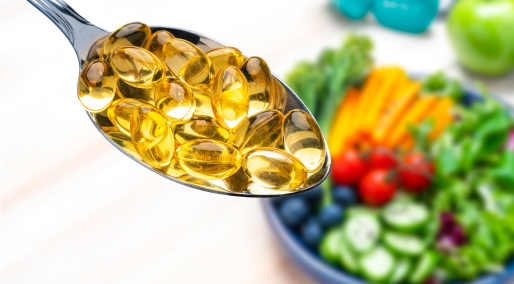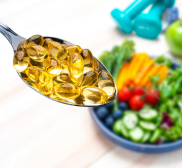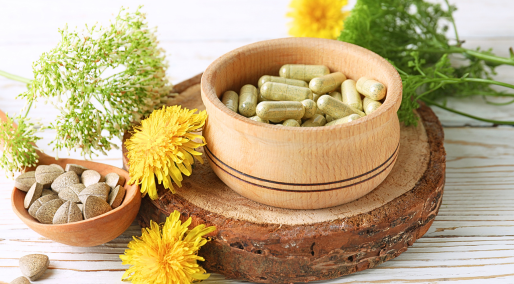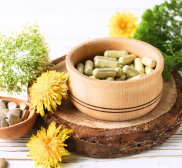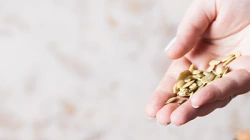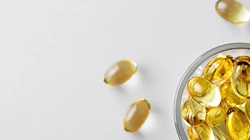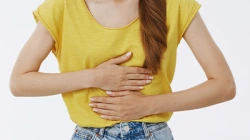.webp)
.webp)

Patryk Chodyniecki
Update date: 27-09-2024
Liver part 1
LIVER DEFATTING DIET - WHY IS IT WORTH IMPLEMENTING?
The liver is one of the most important organs in our body. As a multifunctional gland consisting of four glands, it often helps us digest heavy and poisonous substances. The liver consists of the right lobe, left lobe, quadrate and caudate lobe. In addition, we can distinguish the diaphragmatic and peritoneal surfaces.
Her basic tasks are:
- bile production,
- production of blood plasma protein,
- polysaccharide production,
- enzyme storage,
- processing of carbohydrates, amino acids and purines.
If liver disorders occur, many biochemical dependencies in our body are much worse processed. There are many causes of fatty liver disease and for this reason we should look at them. Everyday stress, lack of a balanced diet and stimulants lead to its burden and then damage. Fatty liver disease in the initial phase may turn out to be a harmless disease. Unfortunately, failure to detect previous symptoms and then failure to change eating habits may result in permanent damage to this organ.
WHAT IS THERE IS A FATTY LIVER?
Hepatic steatosis is the accumulation of fat in liver cells - hepatocytes. It may be alcoholic or non-alcoholic in nature. Alcohol has a hepatotoxic effect and is responsible for the deposition of fat in the liver. However, its abuse is not the only reason that causes this disease.
Research shows that fatty liver affects people who are overweight and obese. Moreover, taking hormonal drugs, diabetes and lipid metabolism disorders lead to this state of affairs. Fatty liver disease occurs when the liver is inflamed (mainly of the viral type).
Many people are at risk of fatty liver disease because it depends on lifestyle, genetic tendencies and even metabolism. If our metabolism is irregular, the liver increases its uptake fats and then stores them inside. This action leads to cell damage and cell remodeling over time. Fatty liver occurs occasionally in pregnant women. However, there is no rule whether this disease affects adults or children. Every person is exposed to them.
FATTY LIVER — CAUSES
The main cause of fatty liver disease is the consumption of large amounts of alcohol and an ill-balanced diet. For this reason, people often talk about alcoholic fatty liver disease. This is not the only reason that leads to disorders of this organ. There is also non-alcoholic fatty liver, which results from problems with metabolism and nutritional factors. The problem in this case is not only excessive meals and obesity, but also fasting and protein malnutrition. diabetes and hyperadrenocorticism may play a significant role in this disease.
Other causes that lead to fatty liver disease are:
- digestion and absorption disorders,
- pancreatic diseases,
- malabsorption syndrome,
- bowel resection,
- celiac disease,
- Leśniowski's disease — Crohn's,
- colitis,
- hepatitis D and C,
- Reye syndrome,
- post-pregnancy complications.
FATTY LIVER SYMPTOMS - HOW TO RECOGNIZE?
Unfortunately, fatty liver disease does not cause symptoms that can be immediately identified with this disease. We only learn that the liver is fatty during tests such as abdominal ultrasound. There are cases in which the patient feels fatigue, weakness, and even discomfort on the right side of the abdominal cavity. The doctor can use a physical examination to determine whether the liver is enlarged or whether the spleen is enlarged.
WHAT TESTS SHOULD BE CARRIED OUT TO DETERMINE CHANGES IN LIVER CELLS?
The priority examination that should allow us to identify fatty liver disease is abdominal ultrasound. If after performing this activity we do not have a certain diagnosis, an MRI can be performed, and even take a liver sample for histopathological examination. In addition, biochemical blood tests can be performed, which will show an increase in the activity of ALAT and ASPAT aminotransferases. Very often, in such a case, we are dealing with hyperglycemia and dyslipidemia.
FATTY LIVER DIET - WHAT TO EAT?
A fatty liver diet should be the most effective way to combat this disease. The success of the entire treatment depends on it. People suffering from fatty liver disease should primarily avoid fatty and fried foods and alcohol, which greatly burdens the liver. Many people like meat. Unfortunately, most of its forms are fatty and are additionally served after thermal treatment in the form of frying in another amount of fat. Such a menu will not help us in degreasing the liver. It will be best if we change fatty meat and frying it to lean meat, baked or steamed. The diet should include meat products, but it is best to change our habits regarding their preparation. Cold cuts should also be chosen with a view to ensuring that they are lean.
- pickled cucumbers,
- carrot,
- lettuce,
- chicory,
- Chinese cabbage,
- tomatoes.
- apples,
- kiwi,
- nectarines,
- watermelons,
- melons,
- bananas,
- peaches.
- soft-boiled eggs,
- skinny cheese,
- low-fat dairy products,
- natural yogurt,
- natural buttermilk,
- curd,
- kefir.
It is not recommended to consume cream by people who suffer from fatty liver disease. Carbohydrates are provided by appropriate cereal products.
- small "thread" type noodles,
- barley cereal flakes,
- oatmeal,
- light and dark bread,
- millet.
- wheat bread; with caramel, with honey, with malt,
- mountain oatmeal, muesli,
- loose rice
- thick noodles
- cream, cream, Cremona,
- coarse groats: barley, buckwheat,
- fat white cheese, cottage cheese yellow and processed cheeses, Feta, blue cheese,
- cured meats and fatty meat, some offal products, e.g. pâté, brawn,
- spicy spices, ketchup, mustard, vinegar.
ALINESS Liver Regeneration Complex (Liver Regeneration) 90 vegetarian capsules
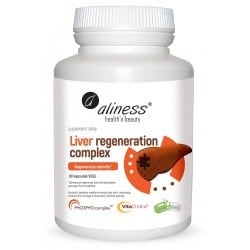
A comprehensive set containing substances such as: silymarin, milk thistle seed extract, milk thistle seed extract, dandelion, NAC and many other substances beneficial to the liver.
JARROW FORMULAS Liver Optimizer (Liver Support) - 90 vegetarian tablets
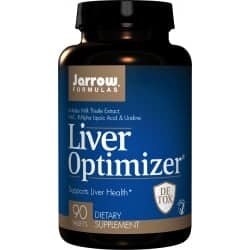
Liver Optimizer combines herbs and other nutrients known to impact detoxification and overall liver function. It is specifically targeted at phase two enzymes that help process and remove toxins from the body. Winter milkweed extract has been shown to influence glutathione levels and help regenerate liver cells. The sulfur-containing compounds naturally occurring R-alpha-lipoic acid and N-acetyl-L-cysteine (NAC) are also involved in the regulation of glutathione. Sulforaphane GlucoSinolat, from broccoli, is a precursor of sulforaphane, an inducer of phase two detoxification enzymes. PicroMax, a standardized extract of Picrorhiza kurroa, is a hepatoprotective herb recognized in Ayurveda. B vitamins support liver enzymes and promote liver regeneration. In addition, uridine nucleoside supports liver detoxification, while NAC conjugates and promotes the excretion of acetaldehyde, a toxic intermediate in alcohol metabolism.
SEEKING HEALTH Liver Nutrients (Liver Health) - 60 vegetarian capsules
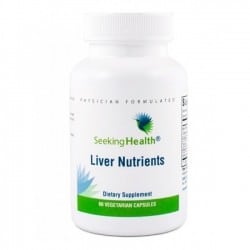
Nutrients Liver by Seeking Health provides a unique blend of nutrients that can support phase I and phase II liver detoxification processes. By combining five key ingredients, Liver Nutrients can support healthy functioning as well as your natural defense system against free radicals. The liver is the body's main detoxifying organ, responsible for deactivating environmental and endogenous toxins. The liver is equipped with several detoxification pathways, including the excretion of toxins through bile and a two-phase enzymatic neutralization process (Phase I and Phase II). Because Phase I reactions produce free radicals and other potentially harmful intermediates, it is important to maintain the proper balance between Phase I and Phase II to support healthy cellular processes.
THORNE Liver Cleanse - 60 vegetarian capsules
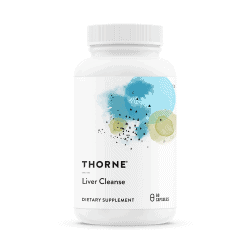
Adequate liver function is necessary for proper detoxification. Many plants have shown the ability to improve the liver's detoxification function as well as increase the excretion of bile by the liver. Thorne's Liver Cleanse is a unique plant-based formula that can synergistically enhance liver function. The botanicals in Liver Cleanse promote bile production and flow, which helps optimize the metabolism and excretion of substances detoxified by the liver. Liver Cleanse is especially helpful during a comprehensive detoxification program. (See below for additional information on detox program recommendations.)
Take advantage of the discount:
1. S. Cabot, "Fatosis Wątroby", Warsaw 2012, p.22,
2. L. Andrew, "Diet for the liver", Astrum, 2012, pp.54-75,
3. Ciborowska H., Rudnicka A., Dietetyka. Nutrition of healthy and sick people, PZWL, 2014,
Rate the text

Patryk Chodyniecki








.png)
